Biology Viruses and Bacteria
1/30
There's no tags or description
Looks like no tags are added yet.
Name | Mastery | Learn | Test | Matching | Spaced |
|---|
No study sessions yet.
31 Terms
DNA or RNA surrounded by a protein coat.
What is the basic structure of a virus?
the host cell has specific receptors for the glycoproteins on the virus.
Animal viruses often infect only specific host cells because
store genetic information
What do viruses have in common with living cells? They both...
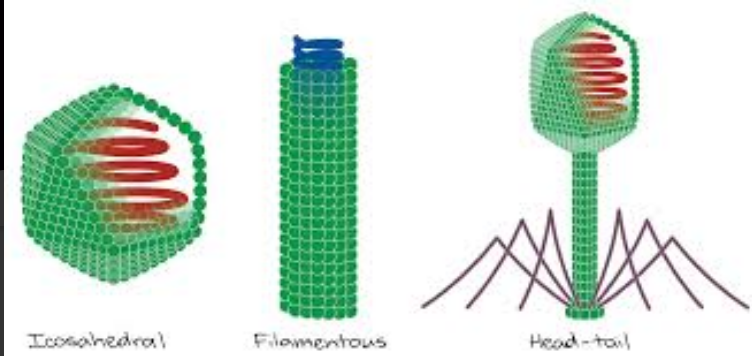
entering body cells and replicating.
Viruses cause infection by
true
The flu is caused by a virus.
False
Antibiotics kill viruses
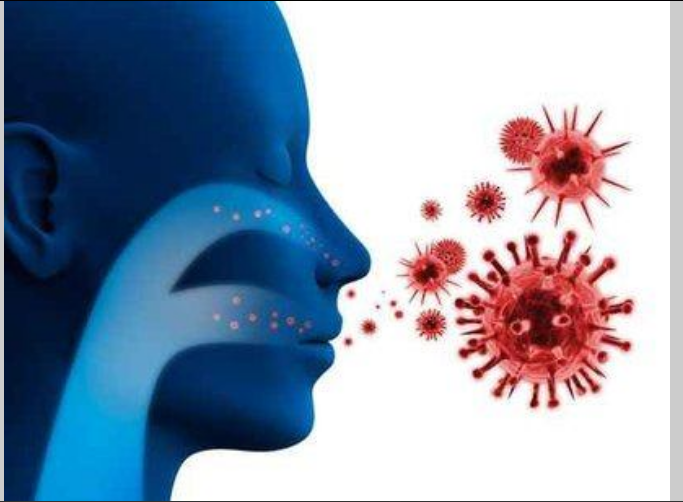
lytic cycle
Which cycle of a virus is most destructive to the host?
virus attaches to the surface of a host cell
What is the first step of the virus reproduction cycle?
The viral genes become a part of the host cell DNA, so the cell continually makes more copies of the virus.
Which occurs during the lysogenic cycle of a virus infection?
coded in either RNA or DNA.
The instructions for making new copies of a virus are
capsid
What part of a virus is the protein capsule that houses the genetic material (DNA/RNA)?
capsid.
The outer protein coat of a virus is called a
lytic cycle
If Andy is feeling symptoms from a virus that he contracted, the virus must be in the
lysogenic
In which type of cell cycle(s) does viral DNA become integrated into the host cell's DNA?
Bacterial cells contain almost no cell organelle
How are bacterial cells different from plant and animal cells?
binary fission
a form of asexual reproduction in which one cell divides, forming two identical cells.
bacili
What shape are these bacteria?
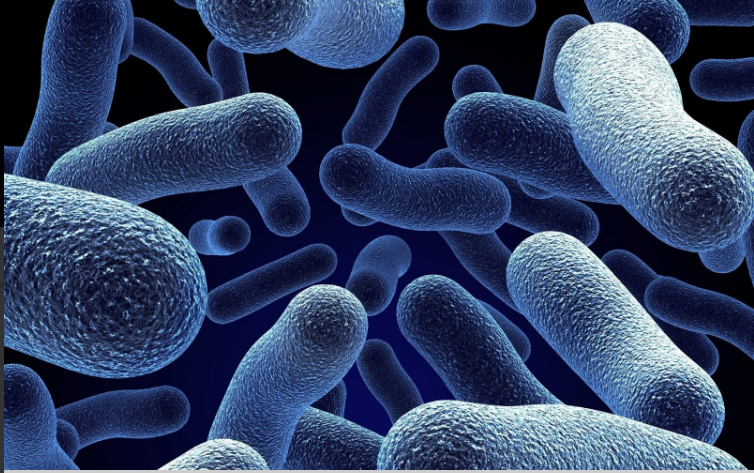
endospore
a structure produced by prokaryotes, such as bacteria, in unfavorable conditions; a thick wall encloses the DNA and some of the cytoplasm.
antibiotics
Type of medicine used to kill bacterial infections.
spirilla
What shape are these bacteria?
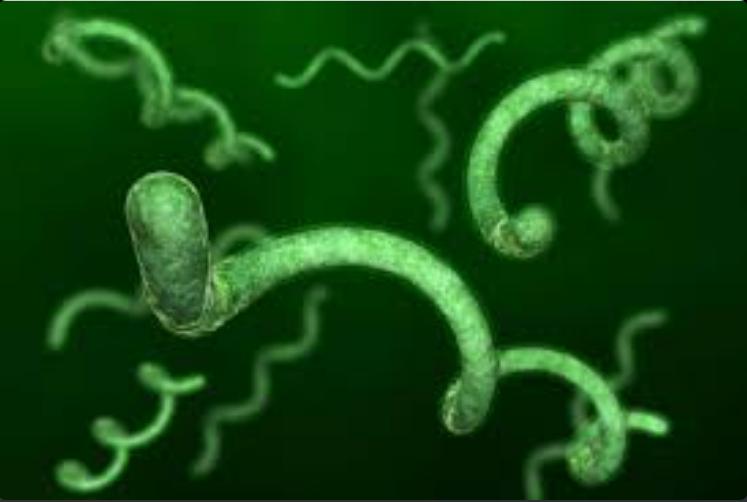
true
Bacteria are single-celled microscopic organisms
pasteurization
a process of heating food to a temperature that is high enough to kill most harmful bacterial without changing the taste of the food.
Alexander Flemming
The scientist who discovered penicillin (a type of anitbiotic).
Your body couldn't break down certain types of food
What might happen if you didn't have bacteria in your digestive tract?
prokaryotic
Cells that lack membrane bound organelles such a nucleus are called
bacteria
single celled organism that lacks a nucleus
cocci
What shape are these bacteria?
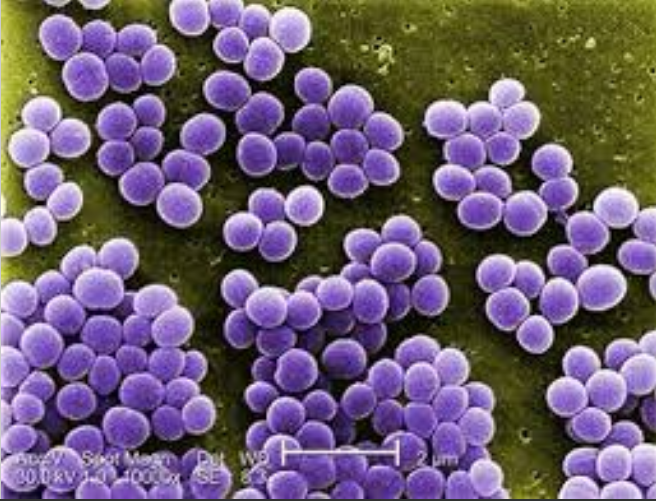
Locomotion
What term best describes the function of flagella in bacteria?
flagellum
a long, whip-like structure that helps a cell to move.
true
Nitrogen fixing bacteria help put nutrients back into the soil and help plants grow.
Bacteria can be both harmful and helpful to humans
Which of the following is a true statement about bacteria?